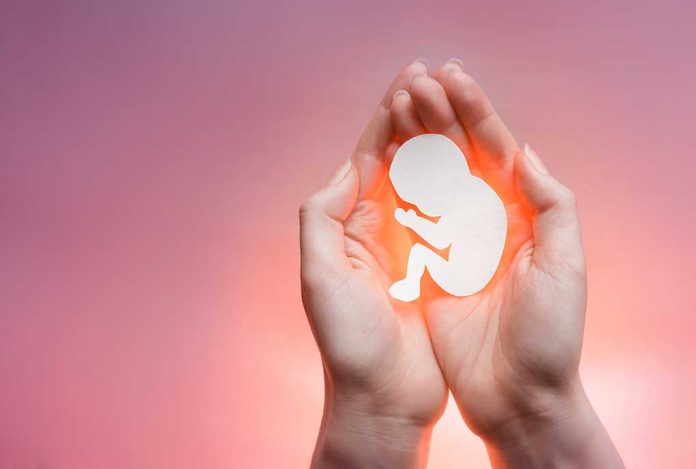
Illinois enacts law to shield workers’ reproductive rights from religious employer discrimination, sparking debate on religious freedom and individual liberties.
At a Glance
- Illinois Governor J.B. Pritzker signed House Bill 4867, prohibiting discrimination based on “reproductive health decisions”
- The law amends the Illinois Human Rights Act to protect workers’ reproductive choices
- Alliance Defending Freedom (ADF) criticizes the law, claiming it threatens religious employers’ rights
- The legislation is part of a broader effort to maintain Illinois as a state protecting reproductive freedoms
- Critics argue the law may infringe on religious organizations’ First Amendment rights
New Law Expands Protections for Workers’ Reproductive Choices
Illinois Governor J.B. Pritzker has signed House Bill 4867 into law, expanding protections for workers’ reproductive rights and preventing discrimination based on their health decisions. The legislation amends the Illinois Human Rights Act to include “reproductive health decisions” as a protected category, covering a wide range of choices related to contraception, fertility, pregnancy, and related medical care.
The new law aims to safeguard employees from facing job loss or other forms of discrimination due to their personal reproductive health choices. It applies to decisions regarding contraception, fertility treatments, sterilization, assisted reproductive technologies, miscarriage management, pregnancy continuation or termination, and various forms of prenatal, intranatal, and postnatal care.
Looking for a state that's safeguarding access to reproductive health care, supporting workers' rights, and strengthening our labor laws to protect your children?
That’s where Illinois comes in.
— Governor JB Pritzker (@GovPritzker) August 2, 2024
Controversy Surrounds Law’s Impact on Religious Employers
While supporters hail the law as a victory for workers’ rights and reproductive freedom, it has drawn criticism from religious and pro-life organizations. The Alliance Defending Freedom (ADF) has voiced concerns, arguing that the legislation may infringe upon the rights of religious employers to hire individuals who align with their beliefs and values.
“[The law] threatens the statutory and constitutional rights of religious and pro-life lawyers.” https://www.christianpost.com/news/illinois-law-threatens-religious-employers-rights-adf-warns.html
Critics argue that the law could force religious organizations to employ individuals whose personal choices conflict with the organization’s religious doctrines, potentially violating First Amendment protections for religious freedom. However, supporters of the bill maintain that it strikes a necessary balance between respecting religious beliefs and protecting workers from discrimination based on their private medical decisions.
Broader Context of Illinois Reproductive Rights Legislation
House Bill 4867 is part of a larger legislative effort in Illinois to strengthen protections for reproductive rights and healthcare access. Governor Pritzker has also signed House Bill 581, which requires hospitals to perform abortions when necessary to resolve life-threatening conditions, and House Bill 5239, which prevents the state from assisting in imposing liability on individuals or entities for lawful healthcare activities, including reproductive health care and gender identity treatments.
“Illinois residents have a right to reproductive autonomy, including freedom from discrimination based on pregnancy, childbirth, and related conditions.” https://dhr.illinois.gov/publications/pregnancy-rights.html
These laws collectively position Illinois as one of the more progressive states in terms of reproductive rights protections. The state is among 13 that have laws protecting the right to abortion before the point of viability and is one of 16 states with a “shield law” to protect residents from persecution for receiving gender transition procedures banned in other states.
We're here today with a single, straightforward message: Illinois will always be a place where women have the freedom to make their own medical decisions.
And that's why I'm proud as Governor to sign legislation that further protects and expands reproductive rights in our state. pic.twitter.com/GS0I91Hijf
— Governor JB Pritzker (@GovPritzker) August 7, 2024
Implications for Employers and Workers
The new law has significant implications for both employers and workers in Illinois. Employers, particularly those with religious affiliations, may need to review and potentially revise their hiring practices and workplace policies to ensure compliance with the expanded protections. Workers, on the other hand, gain additional safeguards against discrimination based on their reproductive health choices.
While the law provides broad protections, it’s important to note that certain religious organizations may still be exempt from some provisions. The specifics of these exemptions and how they will be applied in practice remain a subject of ongoing discussion and potential legal clarification.
As Illinois continues to position itself as a stronghold for reproductive rights, the implementation and potential legal challenges to this new law will be closely watched by advocates, employers, and policymakers across the nation. The ongoing debate surrounding this legislation underscores the complex balance between protecting individual liberties and respecting religious freedoms in an increasingly diverse society.
Sources:
1. Pregnancy Rights in Illinois














